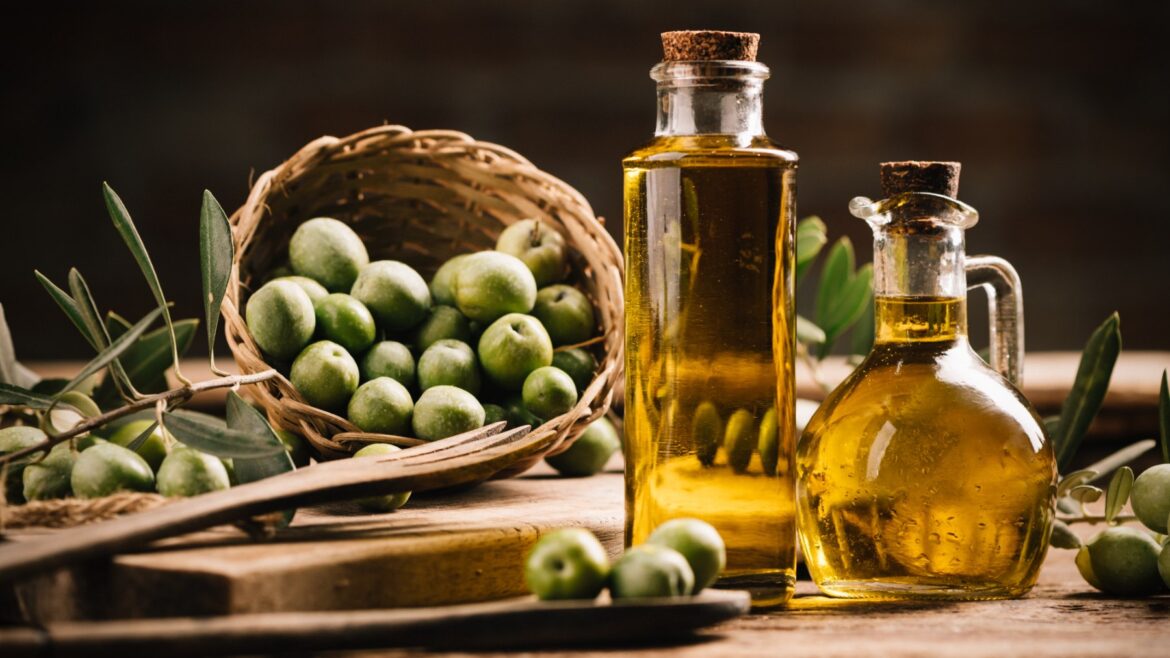You might have gotten a nice bottle of olive oil from that Mediterranean friend. Maybe you dig TikTok’s culinary aesthetic and you had to have a glass jar with beautiful liquid gold. However, you can spoil that extremely expensive ingredient in your pantry if you are not careful with how you store it.
Even premium olive oil has one major vulnerability: it hates light, heat, and air. And unfortunately, those are the three best friends of the average American kitchen.
Why You’re Storing It Wrong
Let’s start with the obvious: next to the stove is the worst place to store olive oil.
The heat from cooking, combined with constant exposure to light, speeds up oxidation. That means the oil becomes rancid long before you finish that artisanal bottle you spent way too much on.
Now, maybe you decanted it into a beautiful transparent bottle because it looks cute on your countertop. But unless you’re using that oil up within a week or two, clear glass is a fast track to degradation. In regions where olive oil is part of everyday life —Spain, Greece, southern Italy— oil is typically stored in dark glass, opaque tins, or ceramic containers. Not because it looks rustic, but because it works.
Think of olive oil like a fine wine with a shorter shelf life. It’s pretty much like soy sauce; Asian households will keep it at room temperature, since it’s their main salting ingredient. But your Caucasian family might need a year to finish a 10 oz. Kikkoman bottle (hence it gets a spot in the fridge). Unless you are using olive oil twice a day, keep it in a cupboard.
Olive Oil Isn’t Like Honey: It Expires (and Then It Gets Ugly)
Unlike honey, which basically lasts forever, olive oil has a ticking clock. And ignoring it is a mistake even the well-meaning foodies make.
Samin Nosrat, writer of the book and Netflix show Salt Fat Acid Heat, recalls with utter horror how an old friend showed her the half-filled bottle of premium AOVE she had gifted them for their wedding… a decade earlier. As sentimental as it was, it would be better to keep it shut or use it to make soap, rather than add rancid oil to a salad.
Here’s the thing: rancid oil isn’t just a little off—it’s bitter, musty, and can ruin an entire dish. Experts agree that olive oil should be consumed within 18 to 24 months of harvest, and even sooner once the bottle is opened.
Mediterraneans and other cultures where olive oil is prevalent make sure to purchase olive oil that has been pressed from that year’s harvest; they even make sure to wait a few weeks to replenish their household’s pantries if that means they will get the freshest oil. While last year’s harvest is not bad, it has lost some properties, and will lower their price… Guess where a lot of that aged oil goes? To export markets where consumers haven’t been taught to tell the difference. Ouch.
Don’t Be Lazy — Wash the Bottle Before You Refill It
So, you’ve bought a large tin and plan to refill a smaller bottle for daily use. Smart move! But don’t just top off the old oil in your container without cleaning it first.
Why? Because leftover rancid oil will contaminate the fresh oil, speeding up its spoilage. This isn’t new advice either —it goes back to the Roman Empire. The agricultural writer Columella wrote in the first century AD that containers must be cleaned thoroughly before refilling them with fresh oil. That’s right: even 2,000 years ago, people knew better.
Today, countries like Spain take it so seriously that it’s illegal for restaurants to serve refillable olive oil bottles. Yes, it’s that important. Your home isn’t a restaurant, but if you’re shelling out for good oil, treat it with the respect it deserves.
How to Store Olive Oil Properly
If you’re using it regularly (within a few weeks):
A dark glass bottle or opaque dispenser is fine.
Store it away from heat —not near the oven or under harsh lighting.
Keep the cap on tightly. Oxygen is the enemy.
If it’s a bottle you won’t use quickly:
Store it in a cool, dark pantry.
Don’t leave it by a window.
If you buy in bulk, keep the original tin sealed and decant small amounts as needed into a clean bottle.
And please, don’t freeze it. Olive oil doesn’t need to be chilled. Just kept cool and dark—like your sense of humor after realizing you’ve been cooking with stale oil.
Storing olive oil properly doesn’t require a sommelier certification or a rustic Italian kitchen, just a little common sense, a cool cupboard, and the occasional bottle wash.

